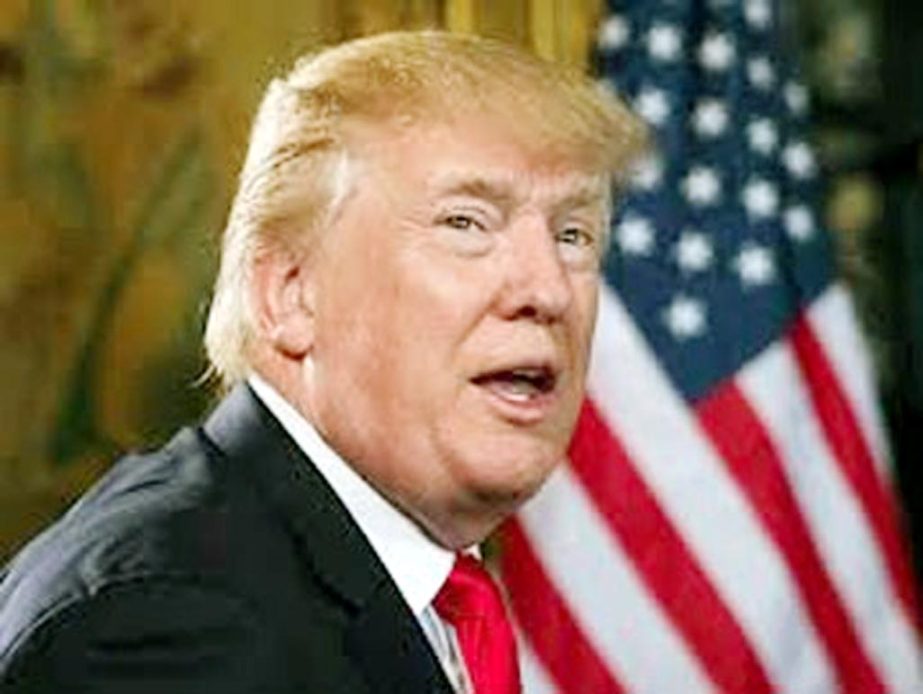
AFP, Washington :
US President Donald Trump enjoyed a modest bump in popularity over the Christmas break, prompting pollsters to wonder whether he’s more popular when he stays out of the news.
During several low-key days at his sun-kissed Florida golf course, Trump’s approval ratings increased from 36 percent on the eve of his departure to 40 percent on his return, according to the latest Gallup polls.
While he remains historically unpopular, his approval rating is today at a higher level that at any point since June last year – the honeymoon of his presidency.
That bump has rekindled a long-suspected theory among poll-watchers: the most attention-hungry president in modern times might actually be better off slightly out of the limelight. “It’s hard thing to prove” said Kyle Kondik, of the University of Virginia, who suspects Trump “does a little bit better in approval when he’s not dominating the news so much.”
Kondik and his colleague Geoffrey Skelley have shown that before the 2016 election, both Trump and Democrat Hillary Clinton saw their poll numbers get better the less news coverage they got.
Given FBI investigations and assorted scandals swirling around the two deeply unpopular candidates – it stands to reason that the absence of predominantly bad news might be beneficial.
Additionally, pollsters Kristen Soltis Anderson and Patrick Ruffini of Republican research firm Echelon Insights found that “in the 30 days before the election, ‘Donald Trump’ was Googled more in states that he lost than in those he won.”
During Trump’s presidency, that apparent trend may have continued.
HuffPost polling director Ariel Edwards-Levy pointed out that when a series of hurricanes hit in the United States around September – the first news cycles not totally dominated by Trump – he faired relatively well in the polls.
Over Christmas he tweeted relatively little, and to an audience distracted by family meals and vacations.
Any clear link between his silence and improved political fortunes could have profound implications for the way Trump communicates. This year promises to be a difficult one for the 71-year-old, with Congressional elections and an FBI investigation looming.
This White House may quickly learn that popularity is the most valuable and fungible currency for any administration.
US President Donald Trump enjoyed a modest bump in popularity over the Christmas break, prompting pollsters to wonder whether he’s more popular when he stays out of the news.
During several low-key days at his sun-kissed Florida golf course, Trump’s approval ratings increased from 36 percent on the eve of his departure to 40 percent on his return, according to the latest Gallup polls.
While he remains historically unpopular, his approval rating is today at a higher level that at any point since June last year – the honeymoon of his presidency.
That bump has rekindled a long-suspected theory among poll-watchers: the most attention-hungry president in modern times might actually be better off slightly out of the limelight. “It’s hard thing to prove” said Kyle Kondik, of the University of Virginia, who suspects Trump “does a little bit better in approval when he’s not dominating the news so much.”
Kondik and his colleague Geoffrey Skelley have shown that before the 2016 election, both Trump and Democrat Hillary Clinton saw their poll numbers get better the less news coverage they got.
Given FBI investigations and assorted scandals swirling around the two deeply unpopular candidates – it stands to reason that the absence of predominantly bad news might be beneficial.
Additionally, pollsters Kristen Soltis Anderson and Patrick Ruffini of Republican research firm Echelon Insights found that “in the 30 days before the election, ‘Donald Trump’ was Googled more in states that he lost than in those he won.”
During Trump’s presidency, that apparent trend may have continued.
HuffPost polling director Ariel Edwards-Levy pointed out that when a series of hurricanes hit in the United States around September – the first news cycles not totally dominated by Trump – he faired relatively well in the polls.
Over Christmas he tweeted relatively little, and to an audience distracted by family meals and vacations.
Any clear link between his silence and improved political fortunes could have profound implications for the way Trump communicates. This year promises to be a difficult one for the 71-year-old, with Congressional elections and an FBI investigation looming.
This White House may quickly learn that popularity is the most valuable and fungible currency for any administration.

